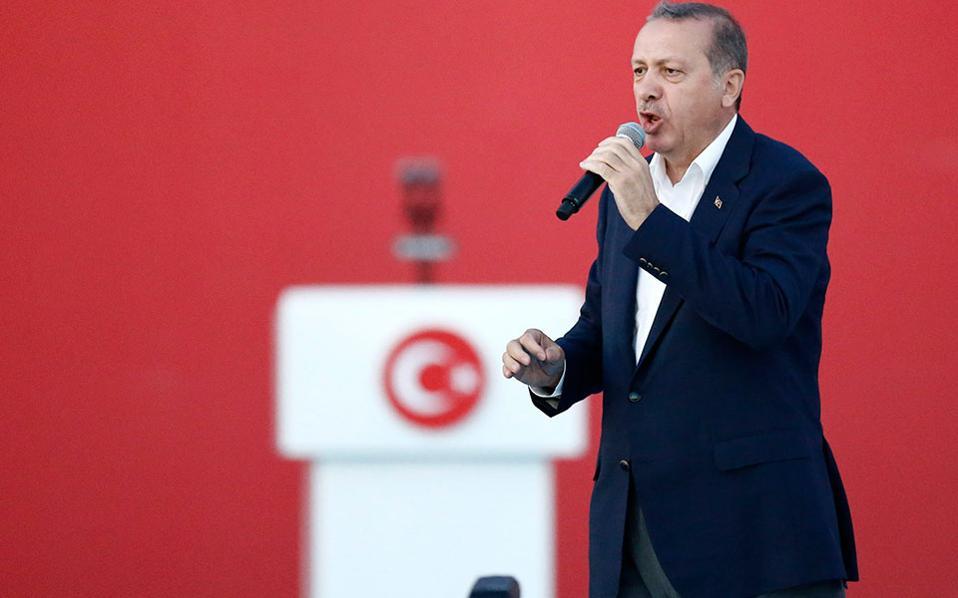Turkey aiming for a master-and-servant relationship

Ankara’s constant bullying of Greece has, naturally, not been missed by observers and commentators. Turkish strongman Recep Tayyip Erdogan is definitely setting the pace, but the threats and pompous remarks coming from the lips of government ministers in Ankara are no less aggressive.
Defense Minister Hulusi Akar recently claimed that Turkey controls the Aegean, the Black Sea, the Southeastern Mediterranean and Cyprus. Everything, in other words, belongs to Turkey. Ankara later tried to recast Akar’s remarks, perhaps because they were somewhat reminiscent of Mussolini’s “mare nostrum” that risked upsetting Moscow. But the essence remains the same.
After all, Turkish fighter jets were sent to fly over Agathonisi when it had been reported that Greece’s Prime Minister Alexis Tsipras would be visiting the eastern Aegean island on the anniversary of the beginning of Greece’s War of Independence from the Ottoman Empire. Some Turkish newspapers went as far as to claim that the island belongs to Turkey.
It has often been stressed that Turkey’s bullying tactics are part of a broader strategy. It’s hard to predict what this strategy could lead to if Ankara should deem that it is faced with favorable timing. The rhetoric certainly is not exclusively aimed at domestic consumption – particularly in light of Turkey’s upcoming local elections – as many people would like to believe here in Greece. For this reason, Athens must be constantly on its guard while reinforcing the capacities of the Hellenic Armed Forces.
However, there is one more dimension to this Turkish policy of bullying Greece. Regardless of its expansionist objectives and whether it will actually attempt to make them happen, Ankara is in any case trying to establish a master-and-servant relationship whereby Greece will not dare to do anything without Turkey’s permission.
It is perhaps just a coincidence that this policy is becoming felt all the more strongly as we approach the bicentennial of the 1821 uprising, but what we are faced with is certainly an attempted revival of Ottomanism under strict Turkish standards.
And because some government officials in Athens seem to have no clue about ongoing developments in Greek-Turkish relations, they should rather, at least, keep their mouths shut.





